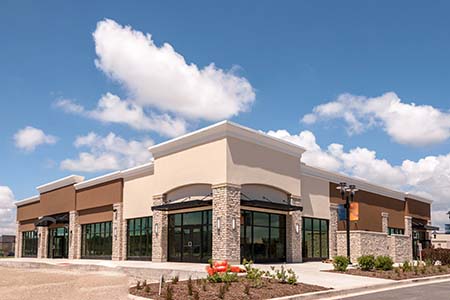Taxable Business Property

- Supplies
- Machinery and Equipment
- Tools
- Office Furniture and Equipment
- Computer Hardware and Operating Systems
- Building / Fixture / Land Improvements
- Leasehold Improvements
- Property Leased to Others
- Construction in Progress
The Commercial Property Division of the Assessor's office assesses the land and real property structures to the land owner, and the Business Personal Property Division assesses the remaining taxable business property (outlined above) to the owner of the business.
You may receive a partial or full exemption if the property is solely used by a church, college, cemetery, museum, school, or library or if the property is owned by a non-profit, religious, charitable, scientific, or hospital corporation. NOTE: If you qualify for an exemption, you MUST still file a Business Property Statement annually.
Every year around March 1st, the Assessor will send a request to file the Business Property Statement or the Agricultural Property Statement. Any business having property with an aggregate cost of $100,000 or more is required to file a business property statement, even if one was not requested by the Assessor. The form should be filled out and returned by April 1st.
You will be required to provide information about the type of business, assets, property, machinery, and equipment used for business purposes.
Please contact the Assessor’s office at (951) 955-6210 if you have not received a request, and are required to do so, by March 1.
The Cost Approach is the most common method for determining business personal property value. It determines the replacement cost new (RCN) of the subject property, then applies depreciation for determination of fair market value. The cost approach is most frequently used in the valuation of business personal property and fixtures.
Click here for the equipment valuation factors used in the cost approach by Riverside County.
Fixtures and other improvements are classified as "real property" and are subject to Proposition 13 restrictions.
Proposition 13 (real property only) allows no more than a 2% increase in value from the prior year, unless there is a change of ownership (sale or transfer of property) or new construction (other than normal maintenance).
It is recommended you include an envelope with paid postage for faster delivery.
If you fail to file a Property Statement when requested or required, we will value the property by estimation. The estimate is based on what we believe is the typical value for a business your size and type.
All property statements are subject to audit in order to verify the accuracy of the information reported. The top several hundred largest business entities are required to be audited once every four years pursuant to Revenue and Taxation Code 469. In addition, several hundred other audits are conducted on varying sizes of businesses at the Assessor’s discretion to ensure proper reporting.
Supplemental Assessments apply to structures, land, and improvements which have changed ownership or resulted from new construction. This is a one-time assessment which prorates the value of the property from the date of change of ownership or completion to the end of the fiscal year.
